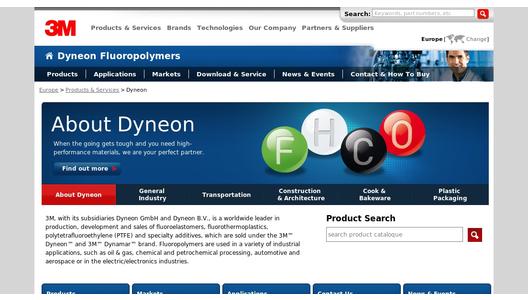Lightweight vehicle components are manufactured using an economical two-component injection moulding process followed by vulcanisation. Components made this way demonstrate high mechanical strength, are able to withstand high temperatures for extended periods and are resistant to the chemical impact of oil and fuels. This makes the light construction material ideal for use in the entire powertrain. It also eliminates the use of cleaning products, phosphate compounds and bonding agents needed for traditional metal processing.
Watch an animation of the injection moulding process below: http://bcove.me/g8t1lms1
Stanyl Polyamide 46 from materials producer DSM N.V. and fluoroelastomers from Dyneon, a subsidiary of diverse technology company 3M, are high-performance materials that, when combined, form an excellent characteristic profile for use in engines. Stanyl polyamide retains its stable mechanical properties even at temperatures up to 200°C. With 80 percent less density than steel, it also substantially reduces the weight of construction components.
The wide range of Dyneon Fluoroelastomers available offers very high chemical resistance against oils, fuels and numerous other chemicals at temperatures up to 230°C. Stanyl polyamides and Dyneon Fluoroelastomers are already used for many seals, gaskets and components in automotive powertrains.
Watch an animation of the molecular bonding concept below: http://bcove.me/a00veg0q
Simplified process through two-component injection moulding
The two-stage manufacturing process provides economic and environmental advantages. Suppliers currently process metal components using planing processes, followed by chemical cleaning and surface treatment. This requires cooling lubricants, cleaning agents, phosphate compounds. and transportation between the different production stages.
Unlike time-consuming and labour intensive metal processing, it is possible to manufacture the new material combination using a two-component injection moulding process followed by vulcanisation. During this process the Stanyl polyamide amino end groups enter into a chemically stable bond with the Dyneon Fluoroelastomers. This eliminates the cost of auxiliary materials as well as their disposal, and the simplified process increases quality consistency. During continuous production, the cycle time for the two-component process - as verified by the German Institute for Rubber Technology - is reduced to a mere three minutes per component. Including the vulcanisation process, the components are ready for installation after just two hours.
This makes the new material combination ideal for components such as crankcases, seals and gaskets, both dynamic and static. In addition, this innovation provides more freedom for new construction designs and assembly techniques as well as the integration of functions.

